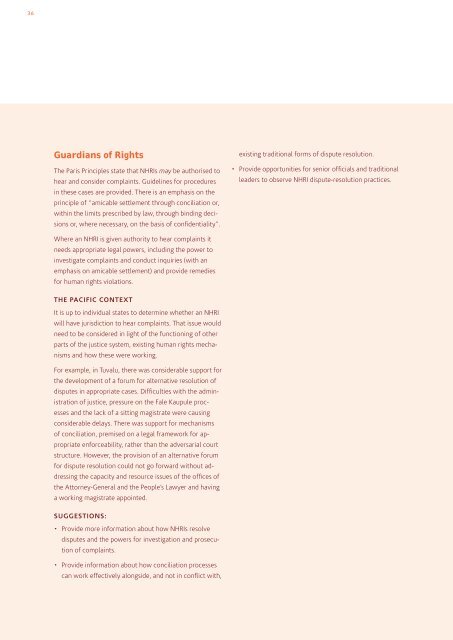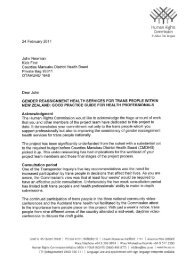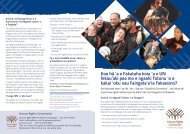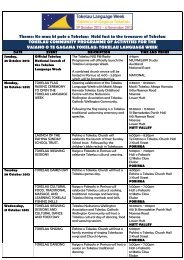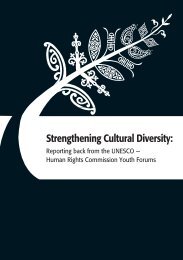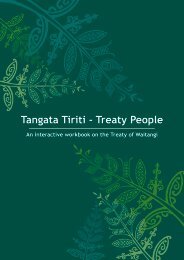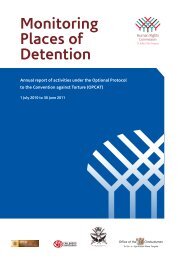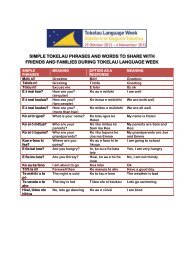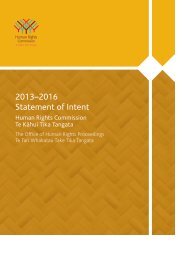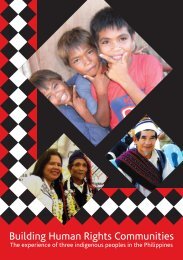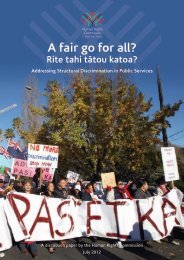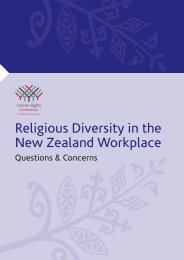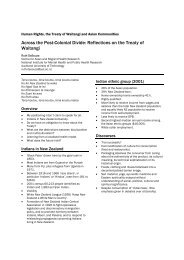National Human Rights Institutions Pathways for Pacific States
National Human Rights Institutions Pathways for Pacific States
National Human Rights Institutions Pathways for Pacific States
- No tags were found...
Create successful ePaper yourself
Turn your PDF publications into a flip-book with our unique Google optimized e-Paper software.
36Guardians of <strong>Rights</strong>The Paris Principles state that NHRIs may be authorised tohear and consider complaints. Guidelines <strong>for</strong> proceduresin these cases are provided. There is an emphasis on theprinciple of “amicable settlement through conciliation or,within the limits prescribed by law, through binding decisionsor, where necessary, on the basis of confidentiality”.existing traditional <strong>for</strong>ms of dispute resolution.• Provide opportunities <strong>for</strong> senior officials and traditionalleaders to observe NHRI dispute-resolution practices.Where an NHRI is given authority to hear complaints itneeds appropriate legal powers, including the power toinvestigate complaints and conduct inquiries (with anemphasis on amicable settlement) and provide remedies<strong>for</strong> human rights violations.THE PACIFIC CONTEXTIt is up to individual states to determine whether an NHRIwill have jurisdiction to hear complaints. That issue wouldneed to be considered in light of the functioning of otherparts of the justice system, existing human rights mechanismsand how these were working.For example, in Tuvalu, there was considerable support <strong>for</strong>the development of a <strong>for</strong>um <strong>for</strong> alternative resolution ofdisputes in appropriate cases. Difficulties with the administrationof justice, pressure on the Fale Kaupule processesand the lack of a sitting magistrate were causingconsiderable delays. There was support <strong>for</strong> mechanismsof conciliation, premised on a legal framework <strong>for</strong> appropriateen<strong>for</strong>ceability, rather than the adversarial courtstructure. However, the provision of an alternative <strong>for</strong>um<strong>for</strong> dispute resolution could not go <strong>for</strong>ward without addressingthe capacity and resource issues of the offices ofthe Attorney-General and the People’s Lawyer and havinga working magistrate appointed.SUGGESTIONS:• Provide more in<strong>for</strong>mation about how NHRIs resolvedisputes and the powers <strong>for</strong> investigation and prosecutionof complaints.• Provide in<strong>for</strong>mation about how conciliation processescan work effectively alongside, and not in conflict with,


